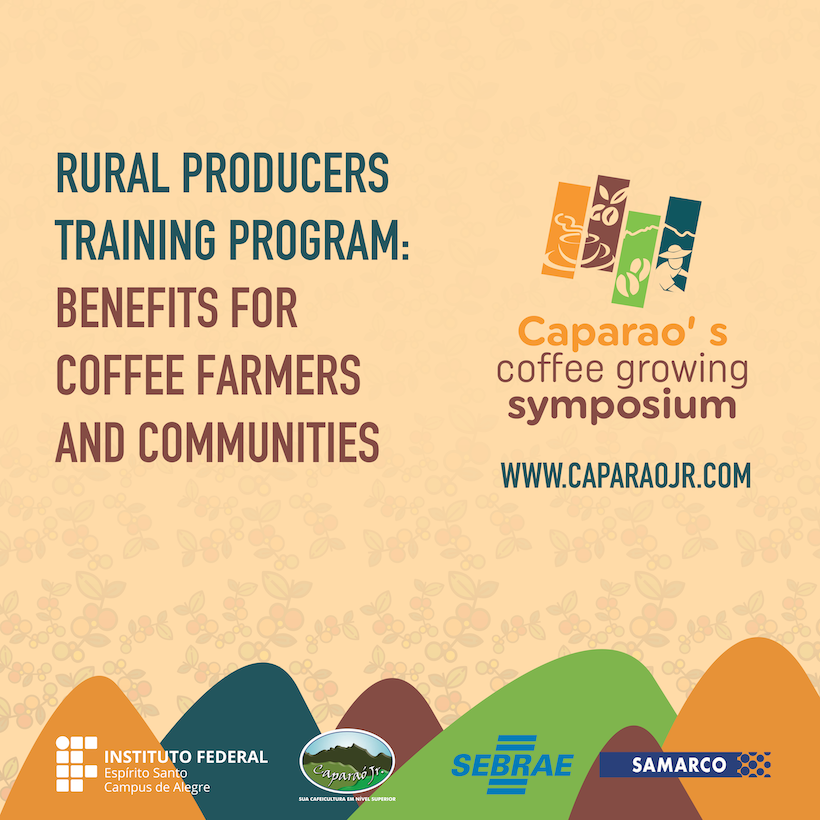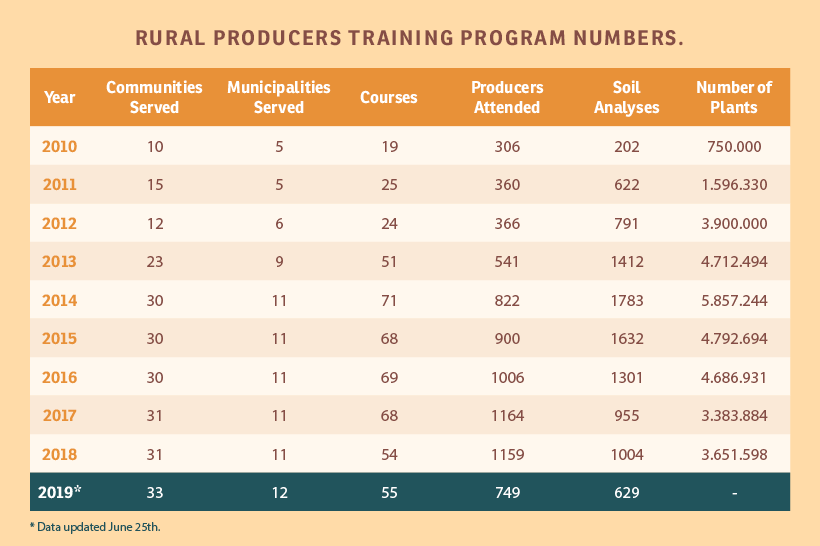28/10/2019

In 2019, the Rural Producers Training Program celebrates its 10th anniversary promoting environmental education, income improvement, qualification and productivity gains and quality of life for coffee farmers in 11 municipalities of Espirito Santo and Minas Gerais.
The initiative is part of the Environmental Education Program (PEA), which meets Samarco’s operating conditions in the slurry pipeline easement strip and of the Muniz Freire Hydroelectric Power Plant (ES). In addition, it is developed in partnership with the Federal Institute of Espirito Santo (IFES) from Alegre/ES, through Caparao Jr, a company formed by students of the higher education course in Coffee Technology.
The Program serves coffee farmers in the Caparao region in the municipalities of Jeronimo Monteiro, Alegre, Guacui, Pores do Rio Preto and Muniz Freire, in Espirito Santo. Another area of activity includes producers from the Matas de Minas region, a traditional coffee region, in the municipalities of Espera Feliz, Divino, Santa Margarida, Orizania, Matipo and Luisburgo. Approximately 1,200 farmers in the two states participate in the program each year, and approximately 6,000 people from local communities are directly involved in the initiative.

Maintaining the farmers’ core activities is the focus of the Program. Through courses, consulting and events, farmers learn how to add value to their coffee by improving product quality and production processes and generating social, economic and environmental benefits.
What does it entail?
Farmers participating in the Program are entitled to:
– consulting and personalized services;
– short training courses on topics related to the management and production of quality coffee and environmental education;
– personalized professional assistance to the program’s producers, aiming at good practices in crop management, agrochemical rationalization and protection of natural resources;
– Analysis of physical and sensory aspects of the coffee;
– Maintenance of the Coffee Bank for trade show presentations, cupping tables and shop windows;
– Annual event for coffee farmers with talks, short courses and workshops;
– Presentation of samples of specialty coffee at fairs and competitions.
Results
– Preservation of water and soil quality by reducing agrochemical use
– Increased coffee quality and average yield per planted area
– Increased income for coffee producing families
– Farmer and his family stay on the land, avoiding rural exodus.